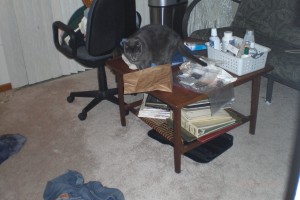Recently I read what was, to me, a startling article reporting on a study that showed a connection between depression, bipolar disorder, schizophrenia, alcoholism and autism, including Asperger’s Syndrome or High Functioning Autism. Apparently this is not such a new finding as I had thought when I first read the article. That’s not surprising, since I’ve been out of the research loop for almost 3 years now. Still, for me it was one of those “OY!” moments. Autism? I’d heard about connections between all the others – but not that. And as it turned out, this study did break new ground.
The connection was found through gene expression. This, according to Leigh Hopper, who wrote about the study for UCLA Newsroom, “… is the process by which instructions in DNA are converted into a product, such as a protein.” A significant overlap was found between molecular pathways in the brain for these five mental disorders. (Do I understand this? Not entirely, so don’t feel bad if you don’t. The important thing for this discussion is that the connection was found.)
Here I must again state that I am not a medical professional, researcher, psychologist, therapist or even a trained counselor. I am a patient who has done a great deal of study about bipolar disorder¹. In this case, I was fascinated by the study, published in Science, because it suggested new possibilities for understanding myself. It may also help you understand yourself or the person you know or love who has bipolar disorder. You may get insights about people with other mental disorders – or none. Some friends of mine have also found enlightenment about themselves by looking at the symptoms of Asperger’s. Continue reading


